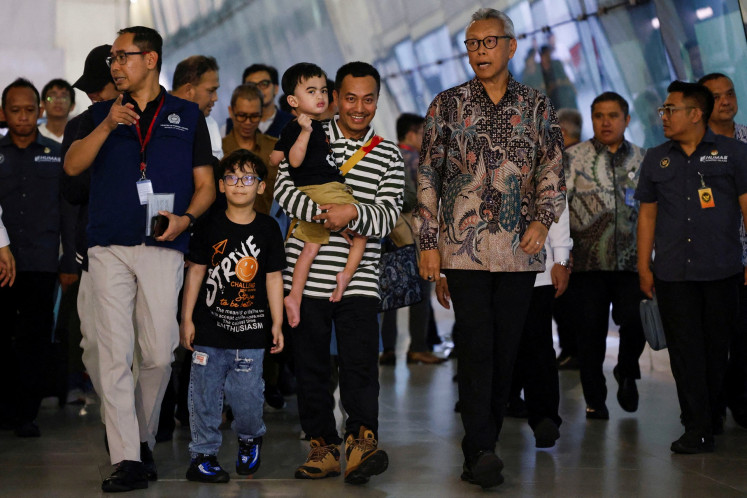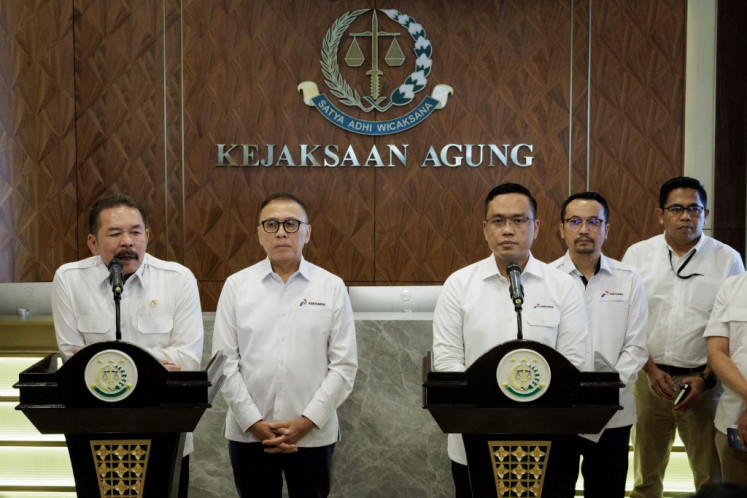Popular Reads
Top Results
Can't find what you're looking for?
View all search resultsPopular Reads
Top Results
Can't find what you're looking for?
View all search results'Kopitiam': from Chinese trader hubs to national hangouts
Change text size
Gift Premium Articles
to Anyone
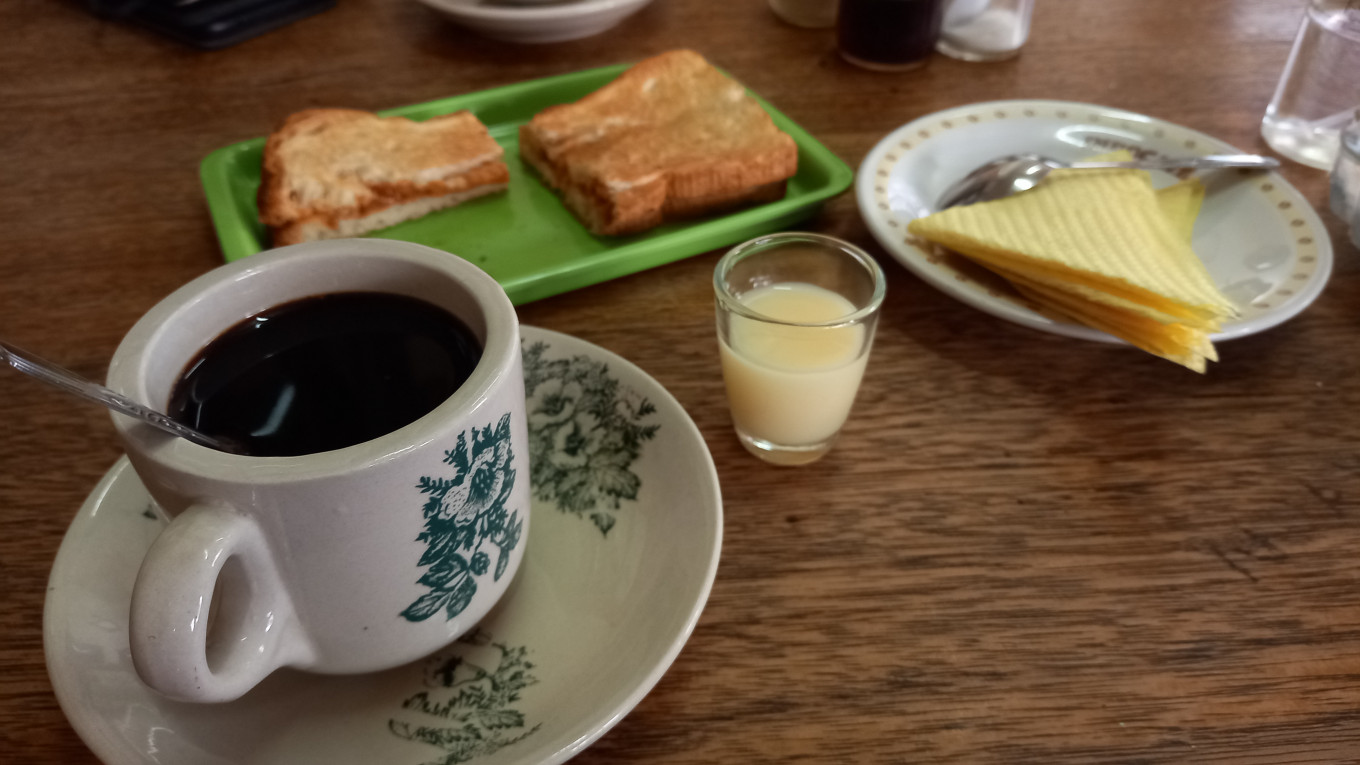
B
reakfast and coffee – kopitiam (coffee shops) have become hangout joints, but their historical context in Indonesia is far deeper.
“This is one of the oldest kopitiam in the city. Every morning, it’s filled with people who want to have breakfast. The kind of people who usually come here are generally traders, politicians and sometimes tourists who want to know the history of Medan city,” said Suyanto Husein, a veteran coffee exporter and former chairman of the North Sumatra Association of Indonesian Coffee Exporters and Industry (AICE).
Suyanto is referring to Apek’s Kopitiam, located in the center of the city. For decades now, it has been a popular meeting hub, where people congregate for formal and informal occasions. It is a particularly popular breakfast spot, with a typical kopitiam menu, including: milk coffee, thick robusta black coffee, toast with srikaya (coconut) jam, half-cooked free-range-chicken eggs and a variety of Chinese specialties, such as kwetiau (rice noodles), buns, Hainanese rice and dumpling noodles.
It is currently run by Suyanti (no relation to Suyanto). She is the only daughter of Thia A Kee, aka Apek, and his wife, Khi Lang Kiao, who inherited Apek’s Kopitiam from Apek’s parents in 2012.
Apek's Kopitiam was founded in 1922 by Apek’s father, an immigrant from mainland China.
As Apek carried on and popularized the family business, patrons began calling it Apek’s Kopitiam.
Like many legacy businesses that have managed to continually thrive, Apek’s Kopitiam is not about to undergo any major changes soon.
Its decor, including the position of the chairs and tables, has remained the same for years.
"We’ve never even moved the clock on the wall," Suyanti said.
Like many other buildings located in the center of Medan, Apek’s Kopitiam inhabits a European-style building. During the Dutch colonial area, this was a place where elites would congregate. Some nearby buildings include the London Sumatra plantation company office, Tjong A Fie Mansion, Bank Indonesia offices, post offices, City Hall buildings and a row of shop houses built in Dutch style.
Culture hub
Suyanto said that for most Indonesians of Chinese descent in Medan, the kopitiam is a “culture hub” where Indonesians of every background — not only Chinese — meet up.
However, there has been a long process to arrive at this point.
“In past decades, the majority of Chinese people who sat in a kopitiam came from a middle-class background - or they were at least business owners or traders, such as grocery-store entrepreneurs, spice traders, shop owners and so on,” said Suyanto.
As most of the patrons met to talk business, there was an absence of workers.
“It was impossible for workers or laborers to hang out at kopitiam in the morning. They had to go to work - no time for laborers to have a coffee in a kopitiam,” he said.
That has changed today, with a mix of people, not only from different racial backgrounds, but economic, as well.
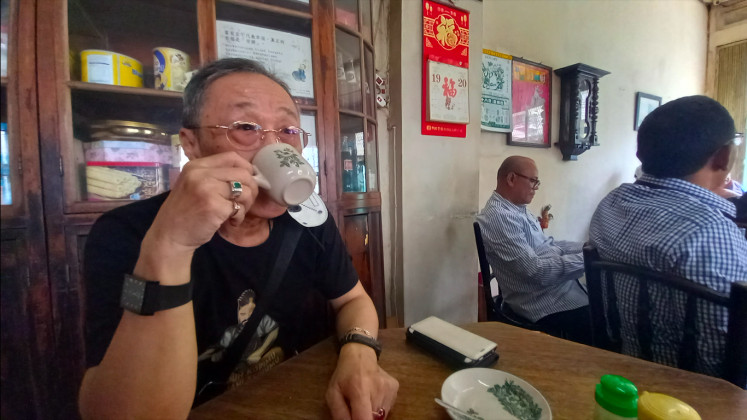
According to the chairman of the Chinese Indonesian Association, Indra Wahidin (Hua In Hoa), the Chinese community arriving at that time were mostly from the southern coast of China, such as Hokkien, Fuchien, Teuchiu and Canton; others are the Khe (Hakka) people.
To improve their lives as unskilled laborers, many would "at least open a grocery business," Indra said.
Historical context
The presence of a kopitiam is a marker that an area has a particularly robust community of Chinese-Indonesians.
Medan historian Phil Ichwan Azhari from Medan State University said the 19th century ushered in a wave of Chinese immigrants who worked in tobacco plantations, with many starting their own businesses, such as food stalls and kopitiam - many of which still stand, and are managed by the founders’ descendants.
"Many of [the migrants] were also traders who wanted to find luck and succeed, one of whom was the Chinese merchant Tjong A Fie who came to Medan with capital to do business," he said, referring to one of the most revered Chinese businessmen, who settled in the region in the late 1800s and early 1900s.
Kopitiam also became a gateway by which Chinese dishes become Indonesian culinary staples.
According to Salimin Djohan Wang, a coffee-shop entrepreneur from Medan, most of the dishes served at kopitiam have a strong Chinese identity adapted to Indonesian taste and style, mostly due to the seller’s business acumen.
"For instance, coffee — Chinese people are not actually coffee drinkers, but because in [the colonial] time, many Europeans drank coffee, the Chinese began blending it with milk — as is the custom of the Dutch," Wang said.
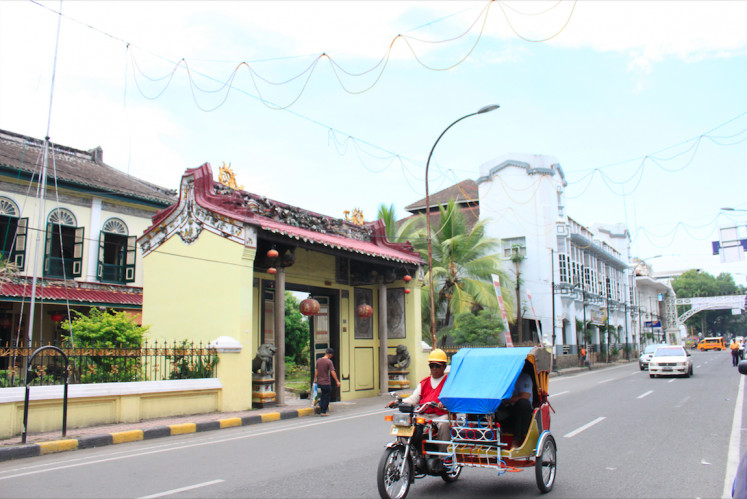
Changing times
For Wang, the changing meaning of kopitiam shows progress in how Chinese culture has integrated into Indonesia.
“In the past, the kopitiam was indeed a place for trading establishments; now it is more like a place to enjoy culinary delights," he said.
Suyanto shares the sentiment, saying that kopitiam are a place for everything.
“At a kopitiam I can feel and enjoy the true meaning of what a café should be. It is where we can talk to each other about everything — from business to hot-topic politics. And we do it all without wifi. There, we really become social beings.”








